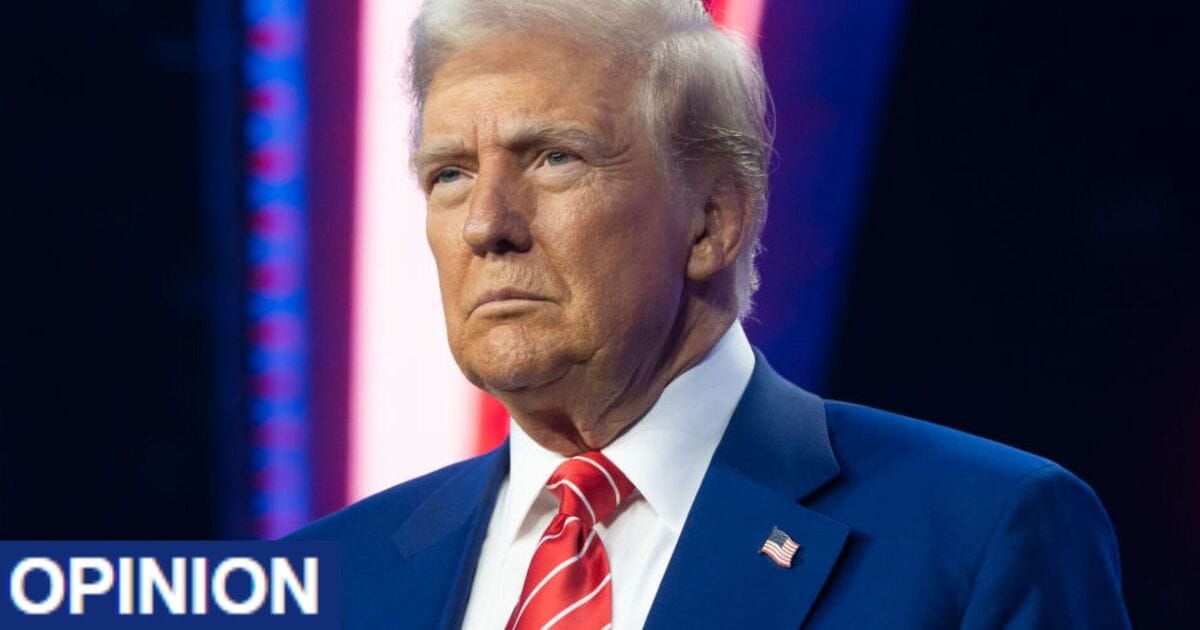With the US 2024 Elections just days away, a stream of headlines containing terms like ‘Electoral Collage’ and ‘key Senate races’ has probably already begun to fill your news feed.
But audiences could be forgiven for not understanding exactly what these terms mean or how American elections work—because, well, they are strange.
Although every vote counts, the presidential race between Kamala Harris and Donald Trump is likely to be decided by just thousands of votes.
And, although the 2024 US Presidential Election will dominate the international newsfeed on November 5, hundreds of other extremely important elections will also occur.
As an American who moved to the UK four years ago, these are the questions I get asked the most about US elections…
The Electoral College – you’ve probably heard of it but might not know how or why Americans use it to elect their President and how controversial of a topic it is in the United States.
The US President is not elected by the popular vote but by a group of people known as Electors.
Each state has a different number of electoral votes partially based on its population: one for each of a state’s two Senators and one for each Representative in the House of Representatives (more on these institutions later).
There are 535 electors for the 50 states and three for the District of Columbia—Washington DC—for a total of 538. A candidate needs to secure 270 to win the Presidency.
The number of electors for states can vary drastically – my home state of South Carolina has nine electoral votes (population around 5.37 million) versus California, which has 54 electoral votes (population around 39.5 million).
Most states have a winner-take-all system (Maine and Nebraska are the exceptions), in which the state’s popular vote winner is awarded all of its electoral votes.
This system, however, is fraught with controversy in the United States.
Critics argue that a nationwide popular vote would be more representative of the nation in choosing its president, while supporters of the College argue that it protects the voices of smaller states because they benefit from the two extra electoral votes regardless of their population size.
The Electoral College is typically seen as favouring Republicans – both George W Bush in the 2000 election and Donald Trump in 2016 won the Presidency despite losing the popular vote.
Regardless of where you stand on this issue, one thing is sure: it forces candidates to focus on specific states where they can win. This brings us to the swing states in 2024.
While you’ve almost certainly heard pundits lauding tight polls in swing states, what are they, and why do they matter?
Due to the Electoral College, only certain states are likely to decide the election by getting a candidate to 270 electoral votes. In my home state of South Carolina, Donald Trump will, with near certainty, win the popular vote.
Because of this, it makes little sense for Trump to campaign in my home state when his time is better spent in neighbouring Georgia, where the race is much closer.
This is why just thousands of votes out of millions can decide a US presidential election; a candidate must win in crucial battleground states while assuming other states are a relatively safe bet or are already lost.
In 2024, the seven key swing states are Michigan, Nevada, Pennsylvania, Wisconsin, North Carolina, Georgia and Arizona.
Polls in these states are typically within the margin of error, meaning the election looks like a toss-up. The media will likely focus on these states on election night. They are the ones to watch.
While the 2024 US Presidential Election will dominate the headlines on November 5, it’s worth remembering that hundreds of other local, state and national elections also occur on the same day.
You heard me mention the House of Representatives and the Senate; both legislative bodies will have all or some of their members elected on November 5.
All 435 members of the House of Representatives are elected every two years, meaning all of their seats are up for grabs on November 5.
It’s worth considering that the House of Representatives is analogous to the UK’s House of Commons. The chamber legislates and even has the power to block some presidential actions with a large enough majority.
The 100 members of the Senate (two for every state) are elected every six years, meaning about one-third of the Senate’s seats will be up for election on November 5.
Each state gets two Senators, regardless of their size, while the amount of House Representatives is determined by population.
The Senate is the US upper house, but unlike the UK’s House of Lords, it has much more power in legislating. Legislation must pass the House and the Senate before the President can sign it into law.
Finally, 13 state and territorial governorships will be elected in 2024. In my mind, the governor is like the President of their state. Hundreds of State Senate and House elections will occur alongside important mayoral elections.
US elections are massive; billions of dollars have been spent, and the news cycle will be in a frenzy surrounding November 5. Millions of people have already cast their ballots via early voting, and millions more are set to turn out.
Polls from swing states are too close to call, and at this point, Kamala Harris and Donald Trump are still firmly in the running to be the 48th President of the United States.





